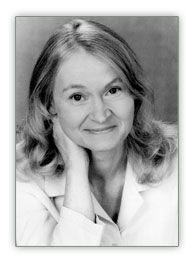In the Studio
This is a photos of my writing studio off a trail at Point Reyes National Seashore, California. When the weather's good, and I'm not teaching, I become a plein air writer. I love to be outdoors and feel jailed if I'm inside on a sunny day.
For me, nature solves the problem of long, solitary hours. Trees are solitary companions, but companions after all, and undemanding ones. Song sparrows and juncos flutter past my feet, and craneflies bump into me and veer away, their long, goofy-looking legs dangling.
Though I've been lucky enough to have been in the same writing group for thirty years, and visit writers colonies, it's nature that helps me most feel centered and meditative when I write.
Every year, I try to camp for a month at a canyon in California's Coast Range. It takes several days for my mind to drop back into a slower animal rhythm in my view, the right speed for poetry but it always happens.
I lug a camp chair, my daypack, binoculars, lunch, water, and books: often Rukeyser, Clifton, Whitman, Neruda, and Merwin. For a few minutes I read to ?prime the pump? before scratching away in longhand. (Machines are all right for revision, but I need to get my body involved and guide the loose cursive across the page.)
My best poems arise out of a quiet mind and a familiarity with my own depths. It's important to face what scares me. If you do not break into that sweat of fear when you write, says Dorothy Allison, then you have not gone far enough.
It's crucial to drop into the unconscious, sink as far as I can, and drift for a while in that dark water.
Nature provides me with companionship on those dives.
Even so, my average is low: I get 1 good page out of 40, and though I produce hundreds of competent poems every year, I only end up with five to ten written from the core.
Eavan Boland says, I always think of myself as working at a rock face. Ninety days out of ninety-five, it's just a rock face. The other five days, there's a bit of silver, a bit of base metal. Unless you have a failure rate that vastly exceeds your success rate, you're not really in touch with what you're doing as a poet.
Jean Rhys echoes this: All of writing is a huge lake. There are great rivers that feed the lake, like Tolstoy and Dostoyevsky, and there are trickles, like Jean Rhys. I don't matter. The lake matters. You must keep feeding the lake.
Sometimes simple tricks get me started. I work with exercises, the same ones I set for my students. Often I use repeated phrases. Sometimes I mistranslate from Tomas Transtromer?s wonderful Swedish poems, free-associating as I go. Because Swedish sounds like English, there are many happy mistakes to be made, though none of them makes sense. This process cuts through my left-brain censor and places me in my right brain, piling up strange images that can jump-start a poem.
I'll do almost anything to get in a state of flow. Verbs drive a line, so I scour poets for strong Anglo-Saxon verbs like blaze or spill, list them in a notebook sections of which are devoted to verbs, nouns, and names, rocks, plants, clouds, etc.
I list ten of these words at the top of my page and drop them into the poem as I go.
I also take Rilke seriously when he says that it?s important to insee: to throw oneself into another form of life?a fox, a bird, a tree?and become it for a short time.
If I?m in a state of grace, I can sometimes feel the things of the world calling to me, asking me to speak for them, to be their voice.
A few years ago I was in a canyon, inside an oak in the shade, trying for at least a minute to avoid my restless human thoughts. All at once, it seemed, the sun rose over the rim of the canyon, and I was sure that I could feel that oak breathe more deeply, as if light were its god.
I believe the process of poetry is mysterious. Jung once said that poets carry the soul of the culture, and I think good poems do reflect a kind of psychic development that transcends craft or competence.
So for me, nature, meditation, and fooling myself into working with goals set low a few pages of junk, a silly exercise all help.
But the substance of poetry does not lie in the sound value of the word, nor in its color, nor in the metric line, claims Machado, but in the deep pulse of the spirit, and this deep pulse is what the soul contributes.
I try to get out of my own way, so that the soul can come forward.
Works Mentioned
Eavan Boland, in Sleeping with Monsters: Interviews with Scottish and Irish Women Poets, pp. 79-90, by Rebecca Wilson, Wolfhound Press, 1990.
Dorothy Allison, Skin, p. 217, Firebrand Books, 1994.
Machado, in Times Alone, p. 14, edited by Robert Bly, Wesleyan University Press, 1983.
Jean Rhys, in Caribbean Women Writers, p. 110, by Selwyn Reginald Cudjoe, University of Mass. Press, 1990.
